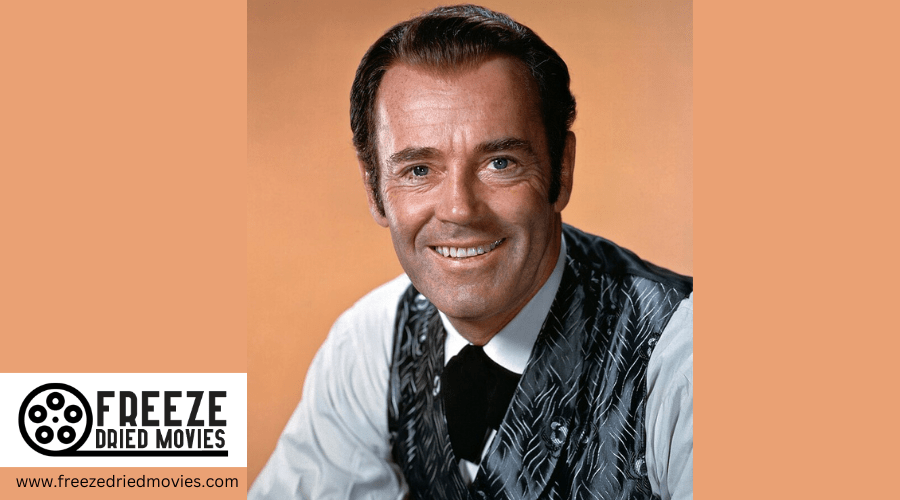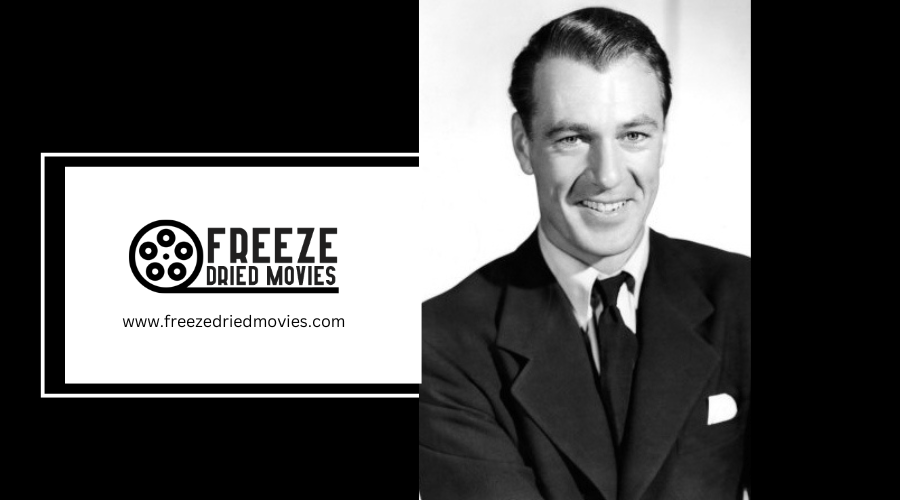Randolph Scott: The Unsung Hero of Classic Western Adventures
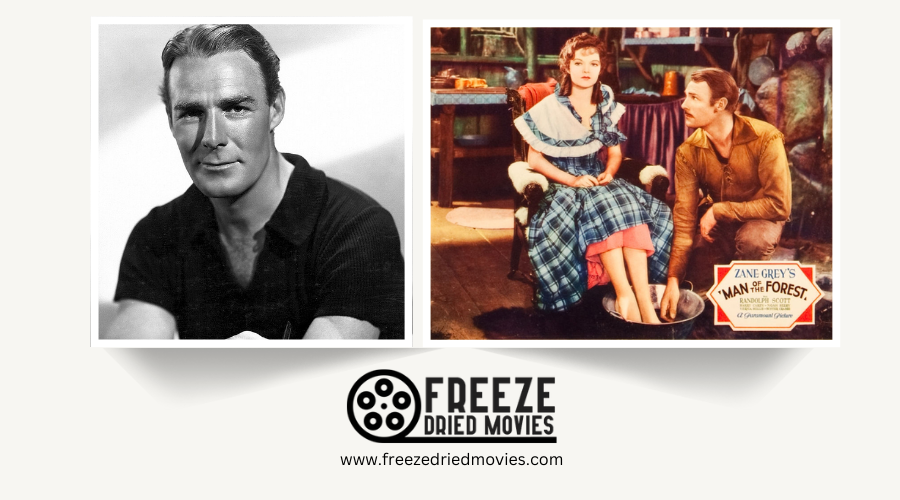
Randolph Scott emerged as the quintessential Western hero through his commanding presence and understated performances. You'll find his journey fascinating—from Southern gentleman to Hollywood icon in over 100 films. He mastered morally complex characters, especially in the acclaimed Ranown Cycle with director Budd Boetticher. His portrayal of Western lawmen set the standard for the genre, creating a legacy of integrity and quiet strength that continues to influence Westerns today.
Key Takeaways
- Scott appeared in over 100 films, cementing his status as one of Hollywood's most prolific Western stars.
- Unlike contemporaries like John Wayne, Scott maintained a restrained, stoic performance style that embodied frontier authenticity.
- The Ranown Cycle films with director Budd Boetticher showcased Scott in morally complex roles exploring ethical frontier dilemmas.
- Scott's portrayal of Western lawmen established an influential template of quiet integrity and moral certainty.
- Despite his extensive filmography and genre contributions, Scott remains underappreciated compared to other Western icons.
From Southern Gentleman to Western Icon: Scott's Early Life and Career
Randolph Scott stepped into this world as a child of privilege in 1898, born to a well-to-do family in Virginia's Orange County before being raised in Charlotte, North Carolina. Scott's father guaranteed he received elite education at private schools, preparing him for a life of refinement. However, duty to the United States called during World War I, where he rose to second lieutenant. While Scott would take a different career path than his contemporary John Wayne's breakthrough, his contributions to Western cinema would similarly help define the genre's evolution throughout the 1940s.
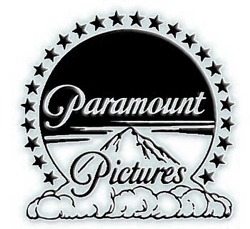
The Paramount Years: Establishing a Hollywood Presence
After his military service, the 1930s marked a turning point in Scott's career when he signed a pivotal seven-year contract with Paramount Pictures. Earning $400 weekly, Randolph Scott quickly established himself in Hollywood through starring roles in adaptations of Zane Grey novels, cementing his image as a Western hero.
Though Westerns became his trademark, you'd be surprised by Scott's versatility during this period. He showcased his range in Paramount's non-Western productions like "Hot Saturday" and "Cocktail Hour." The studio recognized his growing appeal and occasionally loaned him to RKO Radio Pictures, where he appeared in "Roberta" and "She."
Despite being increasingly typecast, Scott's Paramount years proved essential in building the foundation for his enduring legacy in American cinema. His performances embodied the rugged individualism that defined iconic Western heroes of the era and resonated with American audiences seeking moral virtues during uncertain times.
Mastering the Western Genre: Scott's Signature Roles
While Scott established his Hollywood credibility at Paramount, it was his immersion in the Western genre that truly defined his career. In over one hundred films, he emerged as the quintessential leading man of classic westerns, portraying the stoic hero of the Old West with remarkable consistency.
You'll find Scott's versatility on display in films like Buffalo Stampede, where he embodied the rugged frontier spirit as a buffalo hunter, and Rage at Dawn, which showcased his talent for morally complex characters. In Abilene Town, he masterfully portrayed a marshal mediating frontier conflicts, while The Fighting Westerner proved he could adapt Western themes to contemporary settings.
Unlike John Wayne's more flamboyant presence, Scott's understated approach in films like The Stranger Wore a Gun cemented his legacy as the embodiment of frontier virtue and quiet strength. Though he never achieved the iconic status of contemporaries like John Wayne and Cooper, Scott's contributions helped diversify the Western genre's storytelling methods during its golden age of the 1940s.
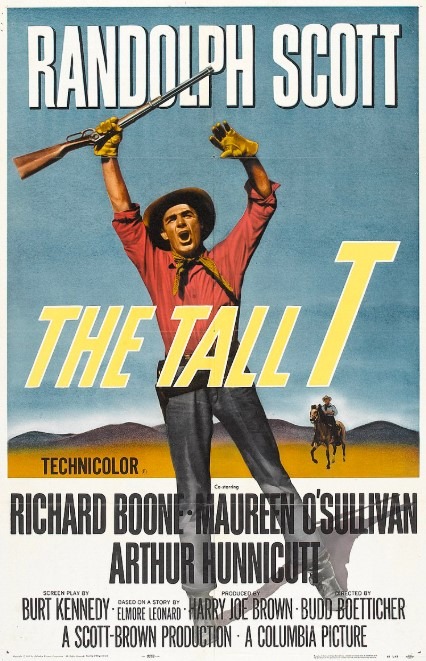
The Ranown Cycle: Artistic Triumph With Boetticher and Kennedy
In the twilight of his career, when many actors face dwindling opportunities, Scott achieved unprecedented artistic heights through his legendary collaboration with director Budd Boetticher and screenwriter Burt Kennedy.
You've likely seen Westerns before, but the Ranown Cycle elevates the genre to art. In films like "Seven Men from Now," "The Tall T," and "Ride Lonesome," Randolph Scott embodied a stoic, morally complex hero traversing a sparse frontier landscape. His restrained performance style perfectly complemented Boetticher's measured direction and Kennedy's taut scripts.
What makes these collaborations exceptional is their psychological depth and minimalist approach. Rather than relying on gunfights and spectacle, they explored the moral ambiguities of frontier justice, cementing Scott's legacy in Western cinema. Much like his contemporaries including Henry Fonda's roles, Scott's performances challenged audiences to consider complex ethical conflicts beneath the surface of traditional Western narratives.
Behind the Badge: Scott's Portrayal of Western Law Enforcement
Though the Ranown Cycle showcased Scott's nuanced dramatic abilities, his most enduring screen persona emerged through his numerous portrayals of Western lawmen. Unlike contemporaries like John Wayne, who often worked with directors such as John Ford, Crane Scott crafted a distinctive lawman archetype through collaborations with producers like Harry Joe Brown.
Scott's lawmen embody duty and sacrifice, standing between civilization and chaos with unwavering resolve - a cinematic depiction to the rule of law in untamed territories.
You'll notice in films like "Abilene Town" and "The Fighting Westerner" that Scott doesn't rely on theatrical flourishes to distinguish good guys from bad guys. Instead, his marshals and peace officers exude a stoic integrity that feels authentic to frontier justice. His no-nonsense presence communicates moral certainty without speechifying.
Legacy in the Saddle: Scott's Enduring Impact on the Western Genre
Randolph Scott's impact on Western cinema extends far beyond his filmography of over 100 pictures, creating ripples that continue to influence the genre today. From his Los Angeles base, Scott crafted a distinctly authentic cowboy persona that later stars like James Garner would emulate.
- His wartime experience infused his performances with genuine gravitas.
- His stoic presence established a template followed by contemporaries like Joel McCrea.
- The "Ranown Cycle" films directed by Edward Dmytryk redefined Western storytelling.
- His famous friendship with Cary Grant added mystique to his on-screen persona.
- Scott's retirement at the height of his powers preserved his legendary status.
- His authentic portrayal of frontier life elevated Westerns from B-movies to respected cinema.

